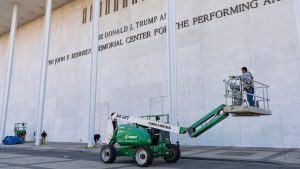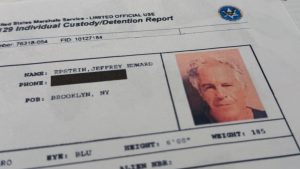Trump admin launches national security probe into chip, drug imports
Ella Greene April 15, 2025 0- The Trump administration opened national security investigations into foreign-made semiconductors, chipmaking tools and pharmaceuticals, potentially setting up new tariffs. The Commerce Department cited Section 232 and invited public input over a 21-day comment period.
- Officials said they aim to reduce supply chain risks and boost domestic production.
- Industry groups warned tariffs could raise costs and disrupt supply without phased implementation or exemptions.
Full Story
The Trump administration launched national security investigations into imports of semiconductors, chipmaking equipment and pharmaceutical products. The probes set the stage for potential new tariffs. The Commerce Department disclosed the probes in Federal Register notices on Monday, April 14, citing Section 232 of the Trade Expansion Act of 1962, which allows tariffs based on national security grounds.
Officials aim to assess whether U.S. reliance on foreign-made chips and drugs poses risks to domestic supply and national defense. The investigations also seek public comment within a 21-day period. Commerce Secretary Howard Lutnick said the administration may implement new tariffs within one to two months.
What products are under review?
The probe into semiconductors covers silicon wafers, chip components, chipmaking equipment and downstream goods that contain chips, including vehicles, smartphones and appliances. Officials also plan to examine pharmaceuticals, active ingredients and derivative medical products.
Although President Donald Trump temporarily paused broad reciprocal tariffs on Wednesday, April 9, the administration clarified that electronics, semiconductors and pharmaceuticals would face separate duties under the Section 232 process.
What impact could these tariffs have on supply chains?
The administration said the new measures are intended to strengthen domestic manufacturing. However, drugmakers and tech companies warned that immediate tariffs could increase costs, trigger shortages and disrupt production. Industry representatives urged the administration to phase in tariffs gradually and consider carve-outs.
Commerce officials said they would study the feasibility of increasing domestic capacity and evaluate how foreign manufacturing, assembly and packaging affect the U.S.’s ability to meet demand.
How does this fit into Trump’s broader trade agenda?
Since returning to the White House in January, Trump has escalated the use of tariffs to protect critical sectors. Previous 232 probes led to 25% tariffs on steel, aluminum and automotive products. The administration recently excluded smartphones and computers from its steep 125% reciprocal tariffs but suggested those exemptions are temporary.
The U.S. began collecting a baseline 10% tariff on most imports on April 5. Trump said he may delay penalties on the auto industry to give manufacturers time to shift production from overseas to domestic facilities.
How have global manufacturers responded?
Taiwan Semiconductor Manufacturing Co. recently announced a $100 billion expansion of its U.S. investments. Nvidia revealed plans to build AI supercomputer factories entirely in the U.S. These efforts reflect broader U.S. policy goals established by the $280 billion CHIPS and Science Act to reduce dependence on foreign technology.
The pharmaceutical industry, with production networks spanning Europe, Asia and the U.S., cautioned that reshoring supply chains would require major long-term investment. Analysts expect announcements on semiconductor and drug tariffs as early as mid-May.
Ella Rae Greene, Editor In Chief
Ella Greene
Ella and the staff at Clear Media Project (CMP) curate these articles.
Unless otherwise noted CMP does not write these articles.
The views, thoughts, and opinions expressed in the articles published on this blog belong solely to the original authors and do not necessarily reflect the views of the blog owner. The blog owner does not claim ownership of the content shared by contributors and is not responsible for any inaccuracies, errors, or omissions.
All rights and credits goes to its rightful owners. No Copyright Infringement is intended. If you believe any content infringes on your rights, please contact us for review and potential removal.





